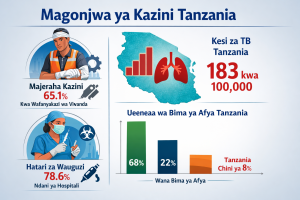
African Continental Free Trade Area (AfCFTA): A tool for Youth Economic Empowerment.
African youths account for 60% of the continent’s population and it is estimated that, by 2050, Africa’s youth population will account for a quarter of the World population. The African Development Bank (AfDB) estimates that there will be 850 million youth by 2050, and again by 2063, young people will account for half of the 2 billion of the working-age population. This signifies that Africa can be the next frontier for economic growth simply by exploiting the demographic dividends associated with this large youth population, however African youth face a considerable number of challenges, but the notable one is unemployment, inaccessibility to finances, and relative trade barriers that push them to engage in informal businesses.
The AfCFTA, a flagship project of the African Union, one of a kind and true blueprint for attaining inclusive and sustainable development across the continent over the next 50 years with aims of facilitating and promoting intra-Africa trade, particularly trade in value-added production and trade across various sectors of the economy. The implementation of this project is thought to empower young people in Africa. Currently, the Project is carrying forward various initiatives such as capacity-building programs, and an Innovation Challenge for the purpose of identifying the challenges facing African youth, however, the big concern is what are the key possible areas under this project where young people may work to improve their economic well-being?
The implementation of this project creates a favorable business-enabling environment that young people can leverage as it acknowledges young people as the drivers for change in economic growth and development; young people will get a wider opportunity to work in various areas such as agriculture value chains, small businesses, export-led businesses, and other start-ups in the continent because of removal of NTB’s by 90%, Visa-free and other promising objectives that will allow free movement of goods, people and services across the continent.
The project is presenting a huge opportunity for employment in the continent especially in the manufacturing sector as it is expected to create up to 16 million new jobs and bridge the employment gap in the continent as stated in a Brookings Institution’s report. Again the project is presenting more opportunities for e-commerce which aims at promoting the emergence of African-owned e-commerce platforms nationally and across the continent, and providing an opportunity for a digital economy.
African youth must be aware of the future of the African Continent that lies in their hand; they must be on the frontline in participating fully in AfCFTA –promotion activities. They should have willing to grab the opportunities rendered by this project and play a role in holding the policymakers and the government accountable by raising their voices through youth platforms. The African Union has established the youth participation platform at the continental level, therefore similar platforms should be created at the national and regional levels to enhance youth participation.
Despite the large youth demographic profile in Africa, achieving the objectives and goals of AfCFTA will be longer than expected if young people will be ignored in the decision-making. Therefore, the implementation of this project should be highly supported by appropriate national and regional policies that support youth involvement. This will play a very crucial role in ensuring that trade opportunities are accessible to young people across the African Continent. To fully achieve the Agreement’s promises and benefits that focus on empowering young economically, African youth must stay motivated, encouraged, and involved in implementing various integrated policies at the national and regional levels. By utilizing the opportunities in intra-African trade and eliminating barriers to trade will encourage more youth to enter into a formal business.



